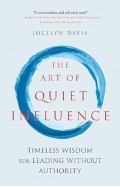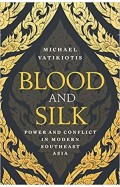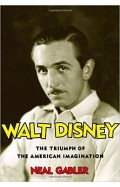The Invention of Power - Popes, Kings, and the Birth of the West
By: Bruce Bueno De Mesquita
-
Rs 5,995.00
Due to constant currency fluctuation, prices are subject to change with or without notice.
Western exceptionalism—the idea that European civilizations are freer, wealthier, and less violent—is a widespread and powerful political idea. It has been a source of peace and prosperity in some societies, and of ethnic cleansing and havoc in others.
Yet in The Invention of Power, Bruce Bueno de Mesquita draws on his expertise in political maneuvering, deal-making, and game theory to present a revolutionary new theory of Western exceptionalism: that a single, rarely discussed event in the twelfth century changed the course of European and world history. By creating a compromise between churches and nation-states that, in effect, traded money for power and power for money, the 1122 Concordat of Worms incentivized economic growth, facilitated secularization, and improved the lot of the citizenry, all of which set European countries on a course for prosperity. In the centuries since, countries that have had a similar dynamic of competition between church and state have been consistently better off than those that have not.
The Invention of Power upends conventional thinking about European culture, religion, and race and presents a persuasive new vision of world history.
Western exceptionalism—the idea that European civilizations are freer, wealthier, and less violent—is a widespread and powerful political idea. It has been a source of peace and prosperity in some societies, and of ethnic cleansing and havoc in others.
Yet in The Invention of Power, Bruce Bueno de Mesquita draws on his expertise in political maneuvering, deal-making, and game theory to present a revolutionary new theory of Western exceptionalism: that a single, rarely discussed event in the twelfth century changed the course of European and world history. By creating a compromise between churches and nation-states that, in effect, traded money for power and power for money, the 1122 Concordat of Worms incentivized economic growth, facilitated secularization, and improved the lot of the citizenry, all of which set European countries on a course for prosperity. In the centuries since, countries that have had a similar dynamic of competition between church and state have been consistently better off than those that have not.
The Invention of Power upends conventional thinking about European culture, religion, and race and presents a persuasive new vision of world history.
The Invention of Power - Popes, Kings, and the Birth of the West
By: Bruce Bueno De Mesquita
Rs 5,995.00 Ex Tax :Rs 5,995.00
Zubin Mehta: A Musical Journey (An Authorized Biography)
By: VOID - Bakhtiar K. Dadabhoy
Rs 840.00 Rs 1,050.00 Ex Tax :Rs 840.00
The Art of Quiet Influence - Timeless Wisdom for Leading Without Authority
By: Jocelyn Davis
Rs 2,795.00 Ex Tax :Rs 2,795.00
Blood and Silk: Power and Conflict in Modern Southeast Asia
By: Michael Vatikiotis
Rs 4,795.00 Ex Tax :Rs 4,795.00
Walt Disney; Triumph of the American Imagination(Deckle Edge)
By: Neal Gabler
Rs 2,895.00 Ex Tax :Rs 2,895.00
Apple: The inside Story of Intrigue, Egomania, and Business Blunders
By: Jim Carlton
Rs 295.00 Ex Tax :Rs 295.00
Top Secret America: The Rise of the New American Security State
By: Dana Priest
Rs 7,465.50 Rs 8,295.00 Ex Tax :Rs 7,465.50
Goodnight Stories from the Life of Sahabah PBUH
By: Saniyasnain Khan
Rs 4,595.00 Ex Tax :Rs 4,595.00
The Art of Quiet Influence - Timeless Wisdom for Leading Without Authority
By: Jocelyn Davis
Rs 2,795.00 Ex Tax :Rs 2,795.00
Blood and Silk: Power and Conflict in Modern Southeast Asia
By: Michael Vatikiotis
Rs 4,795.00 Ex Tax :Rs 4,795.00
Walt Disney; Triumph of the American Imagination(Deckle Edge)
By: Neal Gabler
Rs 2,895.00 Ex Tax :Rs 2,895.00
Apple: The inside Story of Intrigue, Egomania, and Business Blunders
By: Jim Carlton
Rs 295.00 Ex Tax :Rs 295.00
Top Secret America: The Rise of the New American Security State
By: Dana Priest
Rs 7,465.50 Rs 8,295.00 Ex Tax :Rs 7,465.50
No recently viewed books available at the moment.
Zubin Mehta: A Musical Journey (An Authorized Biography)
By: VOID - Bakhtiar K. Dadabhoy
Rs 840.00 Rs 1,050.00 Ex Tax :Rs 840.00
The Invention of Power - Popes, Kings, and the Birth of the West
By: Bruce Bueno De Mesquita
Rs 5,995.00 Ex Tax :Rs 5,995.00
The Art of Quiet Influence - Timeless Wisdom for Leading Without Authority
By: Jocelyn Davis
Rs 2,795.00 Ex Tax :Rs 2,795.00
Blood and Silk: Power and Conflict in Modern Southeast Asia
By: Michael Vatikiotis
Rs 4,795.00 Ex Tax :Rs 4,795.00
Walt Disney; Triumph of the American Imagination(Deckle Edge)
By: Neal Gabler
Rs 2,895.00 Ex Tax :Rs 2,895.00
Apple: The inside Story of Intrigue, Egomania, and Business Blunders
By: Jim Carlton
Rs 295.00 Ex Tax :Rs 295.00
Top Secret America: The Rise of the New American Security State
By: Dana Priest
Rs 7,465.50 Rs 8,295.00 Ex Tax :Rs 7,465.50












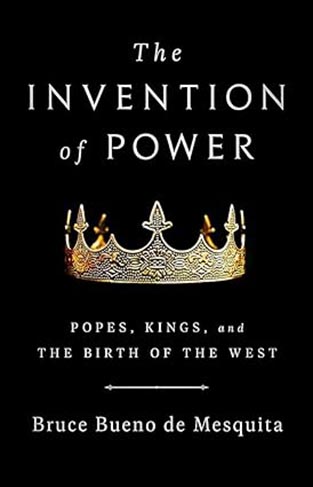
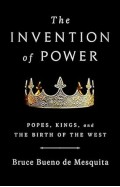
-120x187.jpg?q6)





